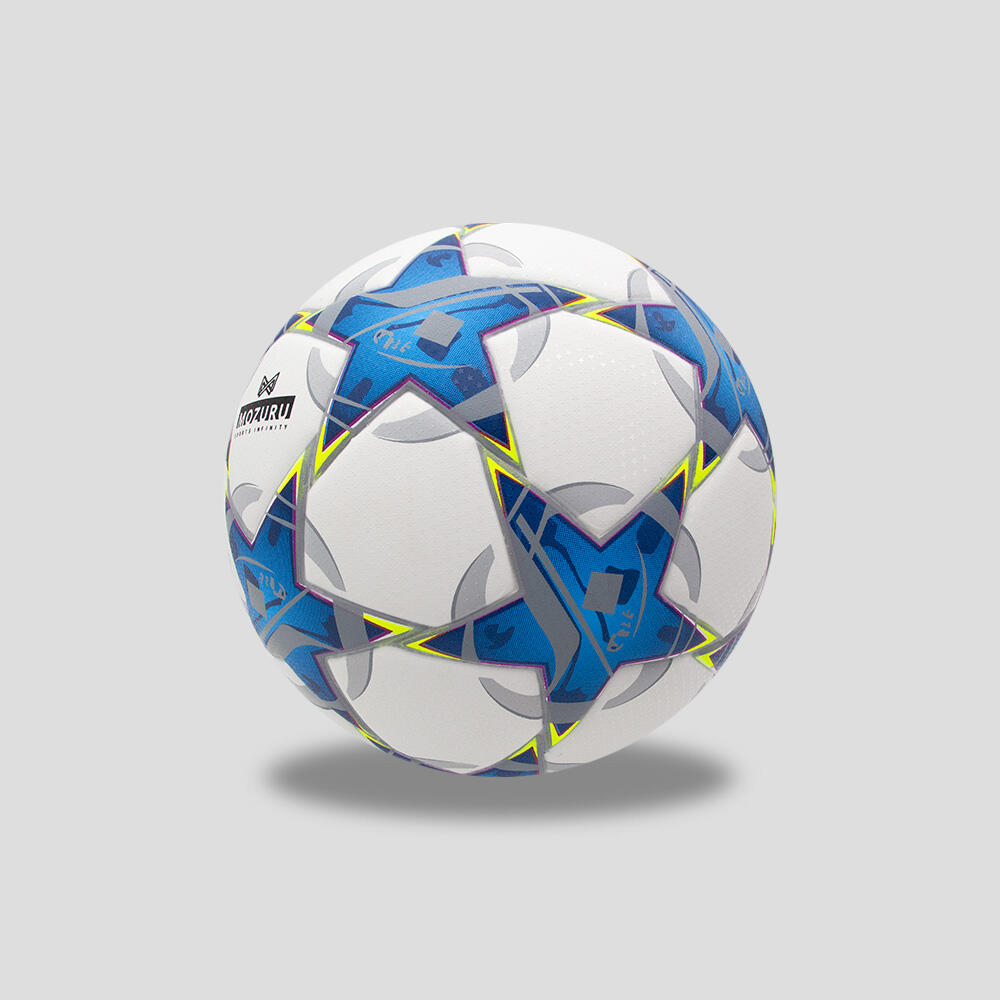Ultimate Guide to Long-Lasting Soccer Balls for Rough Terrain
Playing soccer on hard, rocky surfaces presents unique challenges that can quickly wear down standard balls. Whether you're practicing on concrete, asphalt, or gravel fields, having durable soccer balls specifically designed for rough terrain is essential. This comprehensive guide will help you understand what makes a soccer ball truly resilient and reveal the top options that can withstand the toughest playing conditions.
The harsh reality is that regular soccer balls simply don't hold up when used on abrasive surfaces. They can develop scuffs, tears, and lose their shape rapidly - leading to frequent replacements and frustrated players. However, with recent advances in materials and construction techniques, several manufacturers now offer durable soccer balls that can endure prolonged use on challenging terrain.
Key Features of Rocky Surface Soccer Balls
Advanced Material Construction
The outer shell material is perhaps the most critical factor in a ball's durability. Premium durable soccer balls utilize specialized synthetic materials like polyurethane (PU) with enhanced abrasion resistance. These materials are typically thicker than standard ball covers and may incorporate additional protective layers or treatments to prevent damage from rough surfaces.
Some manufacturers have developed proprietary materials that combine multiple layers of different synthetics, creating a hybrid shell that offers both durability and excellent touch sensitivity. These innovative materials can withstand repeated impact and dragging across hard surfaces while maintaining their structural integrity.
Reinforced Panel Construction
The way panels are connected and sealed plays a crucial role in durability. High-quality durable soccer balls feature thermally bonded or machine-stitched panels with reinforced seams. This construction method creates smoother connections between panels, reducing weak points where separation could occur.
Advanced manufacturing techniques also allow for fewer panel numbers, which means fewer seams and potentially fewer failure points. Some balls now feature as few as 8 panels, compared to traditional 32-panel designs, while maintaining excellent flight characteristics.
Essential Performance Characteristics
Impact Resistance and Shape Retention
Playing on hard surfaces subjects balls to significantly more impact force than grass fields. Top-tier durable soccer balls incorporate specialized bladder designs that help maintain their shape even after repeated heavy impacts. These bladders are often made from premium butyl or latex materials with enhanced pressure retention properties.
The internal structure may also include additional reinforcement layers that help distribute impact forces more evenly across the ball's surface. This prevents the development of soft spots or irregular shapes that can affect performance.
Surface Texture and Control
While durability is paramount, the ball must still offer good playability. Leading manufacturers have developed textured surfaces that provide excellent ball control without compromising durability. These textures are carefully designed to maintain their effectiveness even as the ball experiences wear from rough surfaces.
The best durable soccer balls strike a perfect balance between grip and resilience, allowing players to maintain control while ensuring the surface texture doesn't wear down prematurely.
Maintenance and Care Tips
Cleaning and Storage Practices
Even the most durable soccer balls require proper maintenance to maximize their lifespan. Regular cleaning after use on rough surfaces helps prevent the accumulation of abrasive particles that could damage the ball's surface over time. A simple wipe-down with a damp cloth is usually sufficient.
Proper storage is equally important. Keep balls at recommended pressure levels and store them in a cool, dry place away from direct sunlight. Avoid leaving them outside or in extreme temperatures, as this can affect the material properties and overall durability.
Pressure Management
Maintaining correct air pressure is crucial for both performance and durability. Under-inflated balls are more prone to damage when used on hard surfaces, while over-inflation can stress the seams and materials. Check pressure regularly and adjust as needed, following manufacturer recommendations.
Consider investing in a quality pump with a pressure gauge to ensure consistent and accurate inflation. This small investment can significantly extend the life of your durable soccer balls.
Cost Considerations and Value Analysis
Initial Investment vs. Long-term Savings
While durable soccer balls designed for hard surfaces typically cost more upfront, they often prove more economical in the long run. When calculating the true cost, consider how many standard balls you might go through in the same period. A single high-quality durable ball could outlast several regular balls, making it a smart investment for frequent players.
Some manufacturers offer warranties or guarantees on their durable soccer balls, providing additional value and peace of mind. These guarantees often cover manufacturing defects and premature wear, though they may not cover damage from extreme use.
Performance Value Metrics
Beyond pure durability, consider the overall value proposition including performance characteristics. A slightly more expensive ball that offers both durability and excellent playing characteristics might be a better choice than a cheaper option that sacrifices playability for toughness.
Look for balls that maintain consistent flight patterns and touch sensitivity throughout their lifespan. The best durable soccer balls will continue to perform at a high level even as they show signs of wear from hard surface use.
Frequently Asked Questions
How long can I expect a durable soccer ball to last on rocky surfaces?
With proper care and maintenance, a high-quality durable soccer ball can last anywhere from 6 months to a year of regular use on hard surfaces. This varies depending on frequency of use, specific surface conditions, and how well the ball is maintained.
Can I use street soccer balls on indoor courts?
While durable soccer balls designed for hard surfaces can be used indoors, it's important to check facility regulations first. Some indoor facilities have specific ball requirements due to concerns about marking floors or damaging surfaces.
What pressure should I maintain for optimal durability?
Most durable soccer balls should be inflated to between 8.5 and 15.6 PSI (0.6-1.1 bar), but always check the manufacturer's specific recommendations. Maintaining proper pressure is crucial for both performance and longevity.
Are professional match balls suitable for hard surface play?
Professional match balls are typically optimized for grass play and may wear quickly on hard surfaces. It's better to invest in specifically designed durable soccer balls for rough terrain use, even if they don't carry premium brand status.


